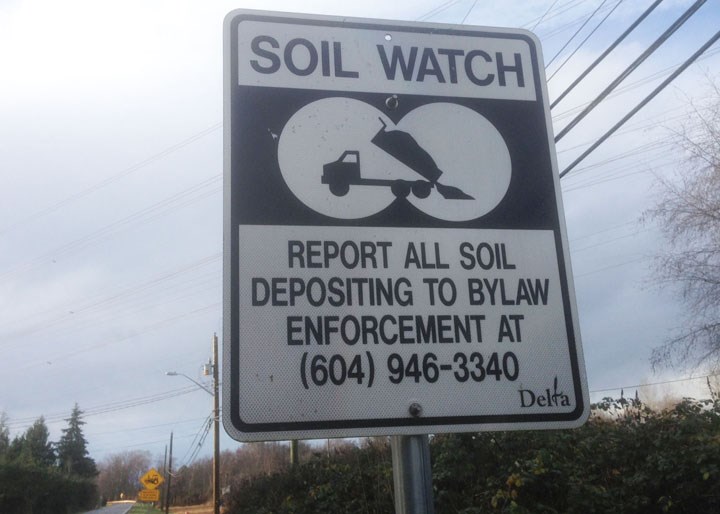Call them the soil police.
That's the description Hugh Davies, Delta's manager of bylaw enforcement, offers when talking about ongoing efforts and a new initiative this year to ensure local farmland is not ruined by being used as cheap spot to dump
waste. "We get stuff from all over the place, including the North Shore. They are just looking for a place to drop the material and some of it is good farm material but some of it is not, so we want to keep track," Davies said. "We're soil cops, that's what we are."
Last year, Delta enacted new regulations when it comes to soil deposit permits, placing the onus on property owners to maintain a log of trucks coming and going. A bylaw officer maintains a log when watching the property from a distance, explained Davies, and then goes to the site to ensure those license plates are on the log the property owner has maintained.
The fine for not having a dump truck registered on the log is $500 per truck.
The regulation is the latest in a series of moves over the past few years.
In fall 2014, Delta council approved tougher legislation to regulate soil removal and deposit activities on farmland.
The move was made in response to continued concerns about fill, including asphalt and concrete, being dumped on good agricultural land.
The legislation is supported through monitoring, by land and air, by Delta staff as well as a Soil Watch program in which area farmers act as Delta's eyes and ears.
That was the year Delta was finally able to halt umping activity taking place at Princess Farms on 104th Street in East Delta, a contentious property that is now the subject of legal action launched by the municipality.
Three years earlier, Delta first took tougher measures against the dumping of fill or contaminated soil on farmland with a bylaw requiring a permit before material can be trucked in.
A staff report at the time noted, "The cumulative effect of these fill operations is to gradually erode the agricultural land base as a prime topsoil is covered over with less fertile subsoil (often mixed with poor quality material such as construction waste)."
This year, another step is being taken to help track material to ensure inappropriate content isn't finding its way on Delta's farms through a regional pilot project to launch in the spring in conjunction with Metro Vancouver. It's aimed at registering soil deposit permits to find out how much fill is being moved and to what properties, explained Davies. "Instead of saying, 'Delta, you'll catch it when it gets out here,' they're now saying, 'Before it even leaves here, we're going to register it and before it even comes out to Delta you get the application.' Delta will check the registry to see where that stuff is coming from. We won't accept it unless it's on a registry," he said.
"We would know what we're getting before it got here. Right now, when it gets here we find out where it comes from."
Noting the registry for fill will also apply to nonagricultural lands, Davies said details still have to be worked out with the regional district before it's launched.



